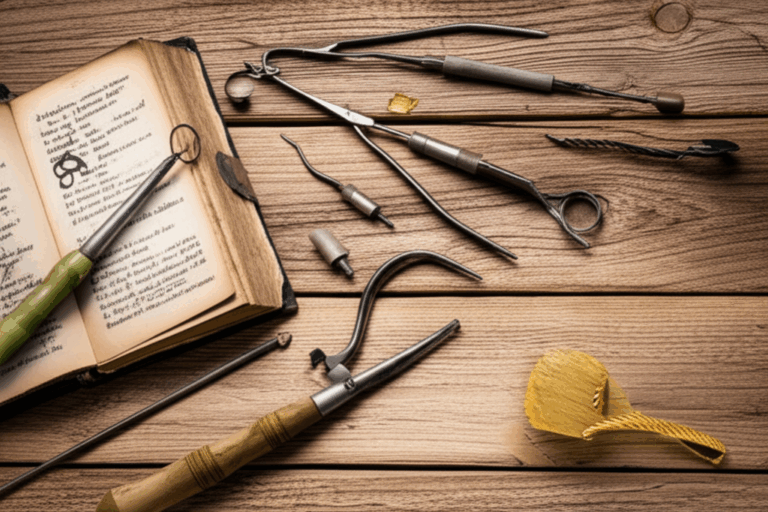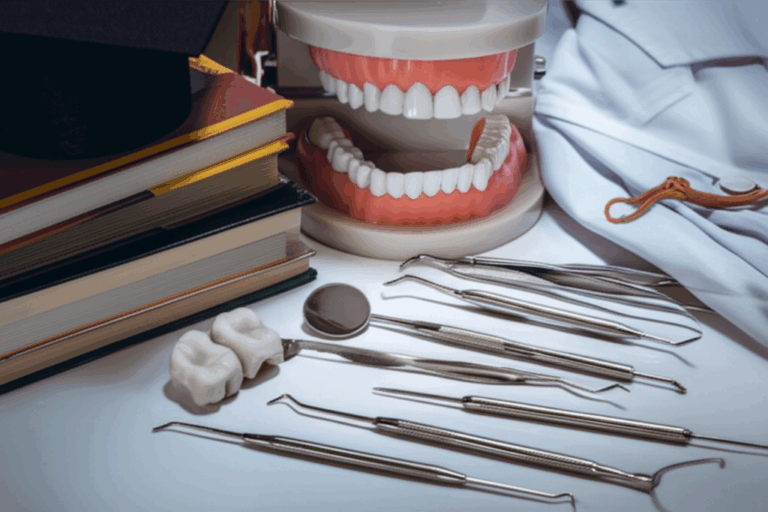
Why Your Dentist Referred You to an Endodontist: Understanding the Specialist Difference
Ever found yourself sitting in your dentist’s chair, only to hear that you need to see an endodontist? If so, you’re not alone. In this article, I’ll walk you step-by-step through why a general dentist might send you to this specialist, what an endodontist does, and how it helps your dental health. This guide is simple, packed with real examples, and will help you feel sure about what to do next.
Table of Contents
Introduction: Why This Article Matters
A lot of people feel worried or scared when their dentist says they need to see another type of dentist. You might think, “Is my tooth really in trouble? Will it hurt or cost a lot?” Knowing why you’re being sent and how an endodontist can help will turn worry into confidence. This article is written with real patients in mind, uses easy words, and goes straight to the things you care about most.
What is an Endodontist?
An endodontist is a dentist who mostly fixes problems inside the tooth, like the tooth pulp and root canals. After regular dental school, endodontists study more for two to three years. They learn how to find, treat, and stop problems in the dental pulp—the soft stuff inside your tooth with nerves and blood vessels.
What They Do:
- Root canal treatment (RCT)
- Saving your own teeth
- Treating dental injuries (like a tooth that is knocked out or cracked)
- Fixing hard infections or problems that didn’t get better the first time
Think of an endodontist as the “tooth saver”—the person your regular dentist trusts for the really tough teeth.
How Does an Endodontist Differ from a General Dentist?
Your general dentist takes care of your whole mouth. That means fillings, teeth cleaning, crowns, and checkups. But when teeth have bad holes, big infections, or strange pain, it’s like a car with a hard-to-fix engine—you might need a pro.
| General Dentist | Endodontist | |
|---|---|---|
| School | Dental School | Dental School + 2–3 Years Extra Training |
| Focus | Cleanings, Fillings, Crowns | Pulp, Root Canals, Injury, Small Surgery |
| Tools | Regular x-rays, Normal Tools | Microscopes, 3D Scans, Special Tiny Tools |
| Treats | Simple Cavities, Easy Root Canals | Hard Root Canals, Big Infections, Fixing Old Root Canals |
Endodontists fix things like hard-to-find canals or root canals that didn’t work—these are usually not things your regular dentist does every day.
When Does a Dentist Refer You to an Endodontist?
Dentists send people to endodontists for many reasons. I remember once, after my own root canal, my tooth still hurt. My dentist said, “We better let someone who does this all the time look at it.” Here’s when that usually happens:
- You still have pain after a root canal.
- The roots of your tooth are hard to see or get to (maybe they’re curved, skinny, or blocked).
- There’s swelling, pus, or a bad infection at the end of the root.
- You hurt your tooth in an accident, or it’s badly cracked and the soft inside is hurt.
- The dentist can’t tell where the pain is coming from and needs expert help.
- The tooth has more roots than normal, or something on your x-rays doesn’t look right.
Tip: Don’t worry if your dentist refers you. They just want you to get the best care for your tooth.
What Problems Need an Endodontic Specialist?
Let’s go over the main things only an endodontist should treat:
- Failed Root Canal Treatment: Sometimes, a root canal done by your regular dentist doesn’t fix the problem. Maybe there’s a canal no one saw or a hidden infection. Endodontists can try again with special tools.
- Tough Root Canals: Teeth with weird shapes, super skinny or twisted roots, or hidden canals.
- Bad or Lasting Tooth Pain: If your dentist can’t find out why you’re in pain, or if pain comes back after treatment.
- Cracked or Hurt Teeth: When a crack goes down to the nerve or root, fixing the tooth gets tricky. Endodontists know how to handle these risks.
- Dental Abscess and Big Infection: If infection spreads, you might see your face swell, your gums get sore, or pus form.
- Resorption: When part of your tooth’s root dissolves from the inside or outside. Specialists see this more and know what to do.
Why Can’t My Dentist Just Do the Root Canal?
This is a question many people have. If you had a root canal and it didn’t work, or your dentist says the job is too hard—don’t feel bad! Here’s why:
- Regular dentists fix most normal cases.
- Some root canals are just harder—they could have lots of little canals, twisty roots, or not enough space.
- Trying again (retreatment) needs a closer look, because old filling material, broken tools, or missed canals might be there.
- High-end technology helps a lot. Endodontists use powerful microscopes, 3D images, and tiny tools to fix problems.
It’s not about saving money or making things easy—it’s about doing it right the first time and giving you the best shot at keeping your tooth.
What’s Different About Endodontist Treatment?
It’s a lot like how an expert chess player knows the best moves and uses them with skill. It’s the same with an endodontist.
Specialist Benefits:
- Better Chance to Save Your Tooth: Specialists save teeth 85–97% of the time.
- Spot-on Diagnosis: Using powerful imaging tools means they see everything.
- Better Pain Help: They know how to numb the area and calm even the most worried people.
- Extra Procedures: If you need minor surgery (like treating the tip of the root), endodontists can do it.
- Quicker, Smoother Work: Specialists see tough stuff every day, so treatment may go faster and smoother than trying again with your regular dentist.
If you want to know how your permanent crown is made after root canal, check out how the crown and bridge lab creates custom solutions.
How Does Seeing an Endodontist Help Save My Tooth?
Nothing beats your own tooth. Endodontists do everything they can to help you keep it.
- Your own tooth bites and looks best.
- Avoids having to pull the tooth and get bridges, implants, or dentures.
- Gives your tooth a second chance—sometimes for life.
A study reviewed by Dr. Joe Dental says specialist care means fewer teeth pulled out later and better mouth health.
If a root canal still doesn’t work or the infection sticks around, you could end up needing an implant. That’s why your dentist might send you for special care right away—getting it done right the first time saves more than just your tooth.
What Happens During an Endodontist Visit?
It’s fine to feel a little nervous or wonder what will happen. Here’s what to expect:
Note: Sometimes you’ll need more than one visit, especially if you have a big infection or a really hard problem. But lots of the time, just one visit is enough to finish the job.
Will I Need More Than One Visit?
It depends on your tooth. Most root canals need only one or two trips. Here’s why:
- If infection is really bad, the endodontist might clean the tooth, place medicine, then finish treatment in a week or two.
- For retreatment or small surgeries, two or more visits may be needed.
Don’t worry about rushing; the specialist wants to fix the problem for good.
How Do I Prepare for My Referral?
Getting ready is simple:
- Bring your dental records, x-rays, and a list of medicines or health problems.
- Ask your dentist if there’s anything special to do.
- Eat something light before, unless you’re getting sleepy medicine.
- Arrange a ride if you’re getting sedatives.
- Don’t be afraid to ask questions!
It’s like getting ready for a big game—know what’s coming, trust the team, and get set for a good result!
Is There a Difference in Treatment Costs?
Endodontists may charge more, but you often save money later. Here’s why:
- You have a much higher chance of keeping your tooth—so you don’t pay for extra fixes or losing the tooth later.
- It’s almost always less expensive to keep your tooth than to get it pulled and replaced with an implant, bridge, or denture.
- Most dental insurances pay for specialist care and root canal treatment.
For an idea of how strong dental repairs are made, check the dental ceramics lab for lasting tooth restorations.
What Questions Should I Ask My Dentist or Endodontist?
Being ready with questions helps a lot. Try these:
- Why do I need to see an endodontist?
- What happens if I wait or put off treatment?
- Are there any risks?
- Does this specialist handle cases like mine often?
- Will I need a crown after?
- How should I get ready, or what should I do after?
If your tooth needs a removable replacement after treatment, a good removable denture lab might help.
How Can I Keep My Teeth Healthy After Treatment?
The best advice my dentist ever said: “Look after your teeth and they’ll look after you.” After any root canal or endodontic work:
- Brush twice a day and floss every day.
- Finish all the care your dentist or endodontist tells you to do.
- Go back for check-ups, x-rays, and cleanings.
- Don’t bite down hard on a tooth that was just treated until it’s fixed.
- Ask about a night guard if you grind your teeth.
It’s teamwork. Your dentist, endodontist, and lab all work together to keep you smiling and pain-free.
Summary: Key Takeaways
- Endodontists are dentists who are experts at root canals and saving teeth.
- Your regular dentist sends you to them if the tooth is a hard case, doesn’t get better, or needs special tools.
- Endodontists use fancy equipment, like microscopes and 3D x-rays, to find and fix tough problems.
- Seeing a specialist means you have a better shot at keeping your own tooth and avoiding more dental work.
- Bring your records, ask questions, and follow care tips to get the best results.
Frequently Asked Questions
Q: Is a referral to an endodontist normal?
A: Yes! Millions of root canals are done each year, and about 15% need a specialist—so you’re not alone.
Q: Will the root canal hurt?
A: With today’s numbing and gentle methods, most root canals feel about the same as getting a filling.
Q: How long will my treated tooth last?
A: If you take care of it, a tooth fixed by an endodontist can last the rest of your life.
Q: What if I wait to go to the specialist?
A: Waiting can let the infection get worse and put your tooth at risk. Try to go soon.
Q: Do I need a crown after my root canal?
A: Most back teeth need crowns, especially after big repairs, to keep them strong.
Most Important Things to Remember
- Being sent to an endodontist just means your dentist cares and wants your tooth to get the best help.
- Your own teeth are worth saving—they’re stronger, last longer, and easier to keep clean if an expert saves them.
- Getting help quickly means less pain, swelling, and less chance of losing your tooth.
- Always ask questions and follow instructions—it’s your smile!
Reviewed by Dr. Joe Dental for clinical accuracy and clarity.








